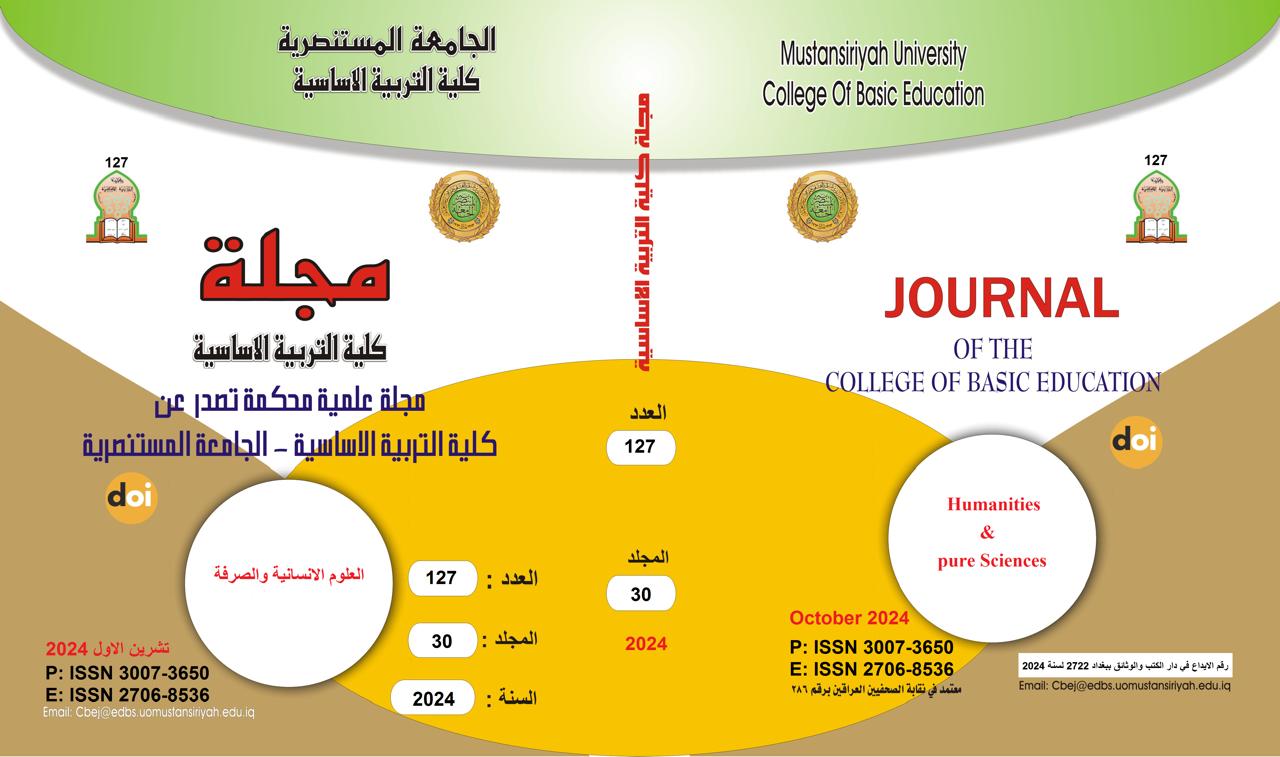The status of dialogues and exercises in the Arabic reading books of the upper primary stage in the light of the methods of developing the linguistic repertoire - a study analytic evaluative
Main Article Content
Abstract
This research seeks to analyze the dialogues and exercises included in the Arabic reading books for the upper primary stage and evaluate them in the light of questions. The development of the linguistic outcome). The researcher used the descriptive approach for his research, and the content analysis method as a way to achieve his goal. Arabic reading books for the upper three grades of primary school in Iraq, for the academic year (2022-2023 AD), which are (610) Demands for dialogues and exercises together.
After examining the researcher's sources for the subject of his research, he prepared a list of methods for developing the appropriate linguistic repertoire for the upper primary stage, and it included one Twenty methods, the researcher made sure of its veracity by presenting it to a number of arbitrators: in the fields of the Arabic language and its curricula, methods of teaching it, measurement and evaluation, then the researcher analyzed the demands of the dialogues and exercises included in the Arabic reading books for grades the upper three of the primary stage in the light of this list, then extract the stability of the analysis by the method of agreement over time, and using the equation (G- Cooper); The average stability coefficient percentage for all methods in the fourth primary book was (94%), and the average stability coefficient percentage in the fifth grade elementary book was (96%). The average stability coefficient is (94%).
The researcher relied on repetition as a unit for enumeration, and after completing the analysis process, by using percentages and the five-point scale to know the weight of each style, the results of the research showed a low level of linguistic repertoire development methods in the demands of dialogues and exercises included in the reading books Arabic for the upper three grades of the primary stage, as it does not exceed - in general - the weak level.
In light of this, the researcher presented a set of realistic and scientific reasons for the results of the research. He also concluded that the dialogues and exercises included in the Arabic reading books for the upper primary stage It cannot effectively develop the linguistic repertoire of children at this stage, as there is no unified scientific base based on I have methods of developing the linguistic outcome in preparing these dialogues and exercises. Accordingly; The researcher recommended a number of recommendations, including:
1- Finding an organized scientific approach to choose the demands of dialogues and trainings, in which methods of developing the linguistic repertoire are taken into account as a main goal. One of the objectives of teaching Arabic reading at the primary stage.
2- Balance in the cognitive and emotional fields (values) when composing and teaching reading topics.
3- Providing Arabic reading books with a guide for the teacher explaining to him how to acquire the linguistic repertoire and methods of developing it among learners of each fashion. Wake up my readers.
Complementing this research, the researcher suggested gonducting subsequent studies as an extension of it; To enrich this important field, which still needs more studies and research.
Article Details

This work is licensed under a Creative Commons Attribution-ShareAlike 4.0 International License.
